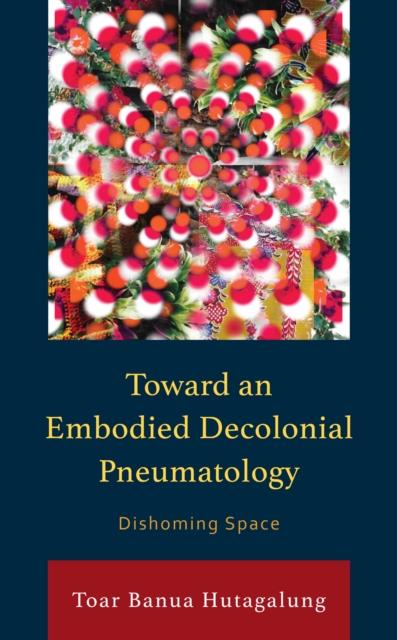
Toward an Embodied Decolonial Pneumatology : Dishoming Space Hardback
by Toar Banua Hutagalung
Part of the Postcolonial and Decolonial Studies in Religion and Theology series
Hardback
Description
Everyone wants to be and to feel at home. Yet, being homely requires a space or place where one can admit feeling familiar with and the surroundings can accept the person.
What does it mean then to be in a liminal space where one is considered not this or not that?
In Toward an Embodied Decolonial Pneumatology: Dishoming Space, Toar Banua Hutagalung tries to analyze this existential question through a postcolonial/decolonial approach.
One thing that is responsible for such liminal spaces is colonialism itself.
Colonialism, through its multiple elements, such as biopolitics, racism, and sexuality, became a formation that looks like a home but is a site of oppression.
Nevertheless, the author argues that liminality is not just a site of rejection.
By addressing a case from the formation of Indonesian nationality as well as taking a closer hermeneutical look at Indonesian literature, the author contends that liminality conveys decolonial acts.
Integrating an interdisciplinary approach from postcolonial/decolonial studies, theological anthropology, and pneumatology, the author asserts that the Holy Spirit always dwells and moves continuously in liminal spaces.
It pulsates within the capillaries of every person to fight against colonial legacies.
With such a decolonial pulse from the presence of the Spirit, one can re-member and recreate what home means.
Information
-
Out of stock
- Format:Hardback
- Pages:216 pages
- Publisher:Lexington Books
- Publication Date:15/04/2024
- Category:
- ISBN:9781666938159
Information
-
Out of stock
- Format:Hardback
- Pages:216 pages
- Publisher:Lexington Books
- Publication Date:15/04/2024
- Category:
- ISBN:9781666938159










